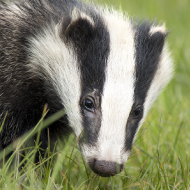
Study shows marked reductions in new TB cases in cattle
The British Veterinary Association (BVA) has responded to a study looking at the effects of four years of badger culling in England on the incidence of bovine tuberculosis (bTB) in cattle.
In the new study, researchers investigated the effect of culling in the first three licensed badger cull areas - Gloucestershire, Somerset and Dorset - using data from 2013 to 2017.
After four years, Gloucestershire and Somerset saw reductions in bTB incidence rates in cull areas relative to comparison areas of 66 per cent and 37 per cent. In Dorset, there was no change after four years. However, incidence fell 55 per cent in the same period in the 2 km buffer zone around the edge of the cull area.
The findings, published in Nature Scientific Reports, show that matched comparison areas were similar but not identical.
BVA junior vice president James Russell said: “These findings are encouraging and offer further evidence that badger culling can result in significant reductions in the number of new cases of TB in cattle. However, they come with the caveat that the data only relates to the first three cull areas, and the variability within these alone makes it too early to draw firm conclusions that culling will reduce incidence significantly in all 40 areas where it is now taking place.
“BVA’s expert working group is currently considering all aspects of disease control looking at cattle testing, removal of reactors, compensation and control in other farmed animals as well as the culling and vaccination of badgers. The group will consider this additional evidence as we develop our new policy on bTB.”
He continues: “We continue to support a comprehensive and evidence-based approach to tackling bTB, including the use of badger culling where there is a demonstrated need and where it is done safely, humanely and effectively as part of a comprehensive strategy. The best way of halting the spread of this devastating disease is enhancing our understanding of bTB and applying that evidence to the eradication process.”



 The Animal and Plant Health Agency (APHA) has updated its online reporting service for dead wild birds.
The Animal and Plant Health Agency (APHA) has updated its online reporting service for dead wild birds.